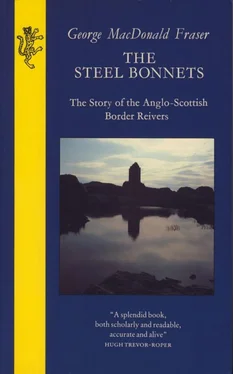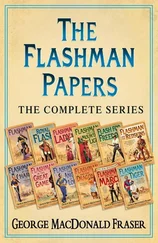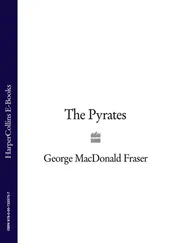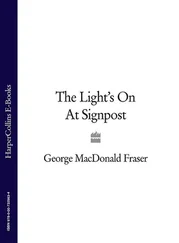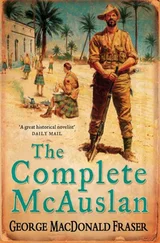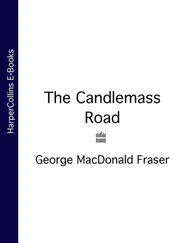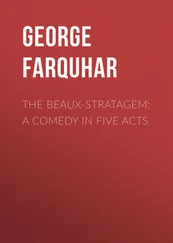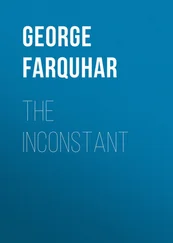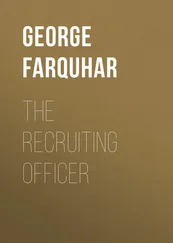George Fraser - The Steel Bonnets
Здесь есть возможность читать онлайн «George Fraser - The Steel Bonnets» — ознакомительный отрывок электронной книги совершенно бесплатно, а после прочтения отрывка купить полную версию. В некоторых случаях можно слушать аудио, скачать через торрент в формате fb2 и присутствует краткое содержание. Жанр: unrecognised, на английском языке. Описание произведения, (предисловие) а так же отзывы посетителей доступны на портале библиотеки ЛибКат.
- Название:The Steel Bonnets
- Автор:
- Жанр:
- Год:неизвестен
- ISBN:нет данных
- Рейтинг книги:4 / 5. Голосов: 1
-
Избранное:Добавить в избранное
- Отзывы:
-
Ваша оценка:
- 80
- 1
- 2
- 3
- 4
- 5
The Steel Bonnets: краткое содержание, описание и аннотация
Предлагаем к чтению аннотацию, описание, краткое содержание или предисловие (зависит от того, что написал сам автор книги «The Steel Bonnets»). Если вы не нашли необходимую информацию о книге — напишите в комментариях, мы постараемся отыскать её.
The Steel Bonnets — читать онлайн ознакомительный отрывок
Ниже представлен текст книги, разбитый по страницам. Система сохранения места последней прочитанной страницы, позволяет с удобством читать онлайн бесплатно книгу «The Steel Bonnets», без необходимости каждый раз заново искать на чём Вы остановились. Поставьте закладку, и сможете в любой момент перейти на страницу, на которой закончили чтение.
Интервал:
Закладка:
But the most interesting nick-names, and the ones in which the Borderers obviously took great pleasure, were those descriptive and often highly offensive appellations referring to personal appearance, habits, and behaviour. Thus we find Curst Eckie, Ill Will Armstrong, Fingerless Will Nixon, Nebless Clem Croser, the two Elliot brothers, Archie and George, who were familarly known as “Dog pyntle” and “Buggerback”, and an Armstrong called “Skinabake”. Names like these last three probably owe themselves to nothing more than the Borderers’ delight in thinking up irrelevant and poetic obscenities to attach to each other; Border children still bandy them about with disarming fluency.
On the other hand, one can guess how David Armstrong came to be known as “Bangtail”. Exploits of a sterner kind are commemorated in names like Ill-drowned Geordie, Archie Fire-the-Braes, Out-with-the-sword, Gav-yt-hem, Crack-spear, and Cleave-the-crune. These explain themselves, but one wonders how a reiver came to be known as Laird-give-me-little, or As-it-luiks, or Hen-harrow, or why the nickname Sweet-milk was so popular. 1
Robert Bruce Armstrong, the Liddesdale historian, had a fine collection of these names, many of them given above, and one cannot do better than this representative selection:
Hob the king, Dand the man, Gib alangsyde, Hob-wait-about-him, Red Cloak, Unhappy Anthone, Sow-tail, Ower-the-moss, Lang Will, Red Rowan, Wantoun Sim, David-no-gude-priest, Evilwillit Sandie, Shag, Bull, Lamb, Mouse, Sore John and Wynking Will.
If we knew how they came to be awarded we would know more of the Borders than we can ever discover from conventional histories.
1.There is a striking resemblance between some of these names and those of Red Indians like Alligator-Stands-Up, Thunder-Rolling-over-the-Mountain, and Crazy Horse. Many of these meant the opposite of what they appeared to mean—e.g. Man-Afraid-of-his-Horses, far from being a term of contempt, meant literally a man so formidable that even the sound of his horses terrified his enemies. Probably some of the Border names above have the same kind of hidden meaning.
X
The game and the song
Like so many warlike people, the Borderers were sports enthusiasts, and still are. The little Scottish towns, with their small catchment areas, produce Rugby teams that compare with the biggest club sides anywhere; within living memory the wrestlers of Cumberland, farm boys and Saturday afternoon amateurs, could send out a team to meet the best in the world and beat them.
There was no Rugby in the sixteenth century, but there was “football”, the father of Rugby, Soccer, and the American game. In its primitive form it lingers today in places like Jedburgh and Workington, where most of the young male population is supposed to take part, and the playing area covers the whole town. The old Borderers loved their football, and on the Scottish side even the nobility joined in, despite the laws against “futbawis, gouff, or uthir sic unprofitable sportis”. Mary Queen of Scots once watched a two-hour match on the meadow beneath Carlisle Castle, and Francis, Earl Bothwell, the notorious “King Devil”, played the game on the Esk with other “declairit traitours to his Majesty” in 1592. He occasionally played dirty too, if we can accept Robert Bowes’ account of an earlier match in which “some quarrel happened betwixt Bothwell and the Master of Marishal upon a stroke given at football on Bothwell’s leg by the Master, after that the Master had received a sore fall by Bothwell.” Every football fan will recognise this sequence of events; obviously some things about the game have not changed. Following the incident Bothwell and the Master agreed to meet secretly next day to fight the matter out, and the king had to intervene.
Football incidents were not always so trivial, however. One match, the fore-runner of the Scotland v. England internationals, perhaps, resulted in slaughter. It happened in 1599, when six Armstrongs came to Bewcastle to play a match against six of the local English boys, and after the game there was “drynkyng hard at Bewcastle house”. However, it happened that a Mr William Ridley, an Englishman, “knowing the continual haunt and receipt the great thieves and arch murderers of Scotland, had with the captain of Bewcastle”, determined to capture the Armstrong footballers while they were on English ground. No sportsman, he assembled his friends and lay in wait, but somehow the Armstrongs had been tipped off, and Mr Ridley’s ambush party found themselves suddenly set on by more than 200 riders. Ridley and two of his friends were killed, thirty taken prisoner, “and many sore hurt, expecially John Whytfeild whose bowells came out, but are sowed up againe”.
The result of the game is not recorded.
Even more popular was horse-racing, in which the Borderers excelled, especially in the West Marches. The prizes were usually bells, and the oldest, dating from the 1590s, is in Tullie House Museum, Carlisle. Like the football matches, race meetings were frowned on by the authorities because they attracted the dregs of society, and were commonly used as covers by plotters: the rescue of Kinmont Willie was planned, in its later stages, at a Scottish race meeting, and the murder of Sir John Carmichael, a Scottish Warden, by Armstrongs, was plotted at a football match.
However, Wardens and officers sometimes attended the races. Young Buccleuch was a race addict, Lord Willoughby 1 entered horses at Scottish meetings and won a bell, and young Scrope, who was a compulsive gambler, attended at least one meet where he conducted secret political business. The meetings appear to have been quietly run, considering the times, but there were occasional outbursts of violence, and at one meeting where a Graham and an Irvine quarrelled, the Irvine’s horse was killed.
Racehorses were greatly prized, and although horse-trading between the realms was forbidden from time to time, leading Borderers as well as lesser men were willing to wink at the law where a good mount was concerned. It was not unknown even for a Warden officer to enter a horse for a race so that a prominent reiver from the other country might judge it with a view to buying—and this a reiver whom the officer had arrested in dramatic circumstances not long before (see p. 120, note 5).
Hawking, hunting and fishing were of course popular sports, and occasionally provided the excuse for Anglo-Scottish fraternisation, although one celebrated hunting resulted in bloodshed, and almost full-scale battle. Farther down the sporting scale cock-fighting was popular, and still takes place in Cumberland: during the war I saw a main organised by Border Regiment soldiers in Burma, and only a few years ago a Cumberland farmer ran for Parliament on a platform to legalise cock-fighting. 2
All these sports lent themselves to gambling, which seems to have been quite heavy, and cards was also a popular way of losing money and stolen goods. Reivers commonly wagered their spoils; for example, William Taylor of Hethersgill, an Englishman who rode forays with the Armstrongs, “had fower nowte (cattle) about his house, stolen from Chalke, and plaied one of them away at cards”. At the other end of the social scale King James IV of Scotland, visiting Dumfries in 1504, played cards against the English Warden, Lord Dacre, who took him for £2 6s 8d. Border papers and letters contain many references to cards, but dice is less frequently mentioned.
The more sophisticated entertainments were rare. London might be enjoying a theatrical boom late in Elizabeth’s reign, but when a troupe of actors crossed the Border in 1599 it was such a phenomenon that John Carey wrote to Cecil about it: the Kirk had forbidden them to appear in Scotland, he reported, “and have preached against them with very vehement reprehensions”. But to the great offence of the Church, King James VI, who was a theatre enthusiast, commanded that the players should perform and that no one should be prevented from seeing them.
Читать дальшеИнтервал:
Закладка:
Похожие книги на «The Steel Bonnets»
Представляем Вашему вниманию похожие книги на «The Steel Bonnets» списком для выбора. Мы отобрали схожую по названию и смыслу литературу в надежде предоставить читателям больше вариантов отыскать новые, интересные, ещё непрочитанные произведения.
Обсуждение, отзывы о книге «The Steel Bonnets» и просто собственные мнения читателей. Оставьте ваши комментарии, напишите, что Вы думаете о произведении, его смысле или главных героях. Укажите что конкретно понравилось, а что нет, и почему Вы так считаете.
